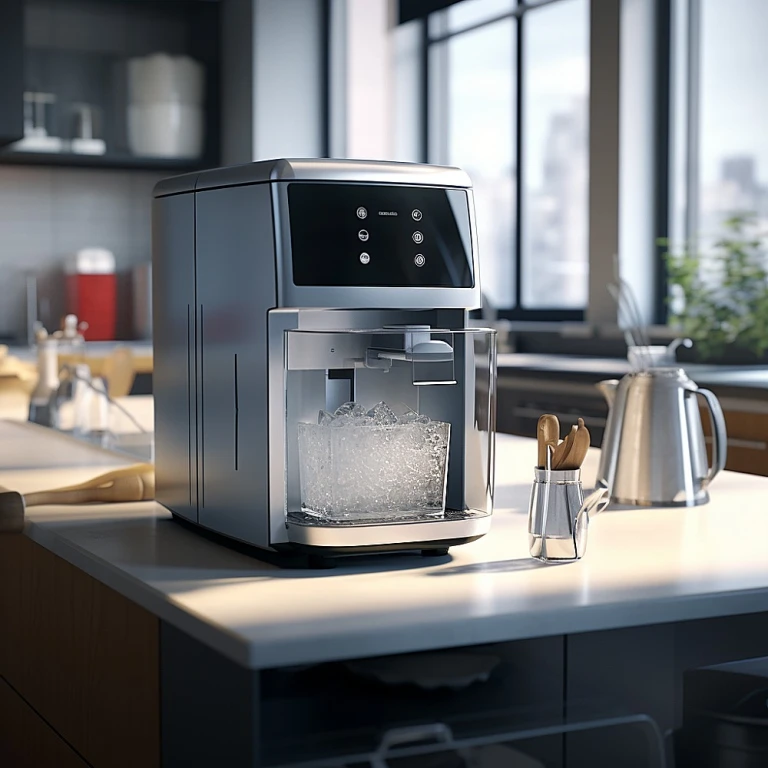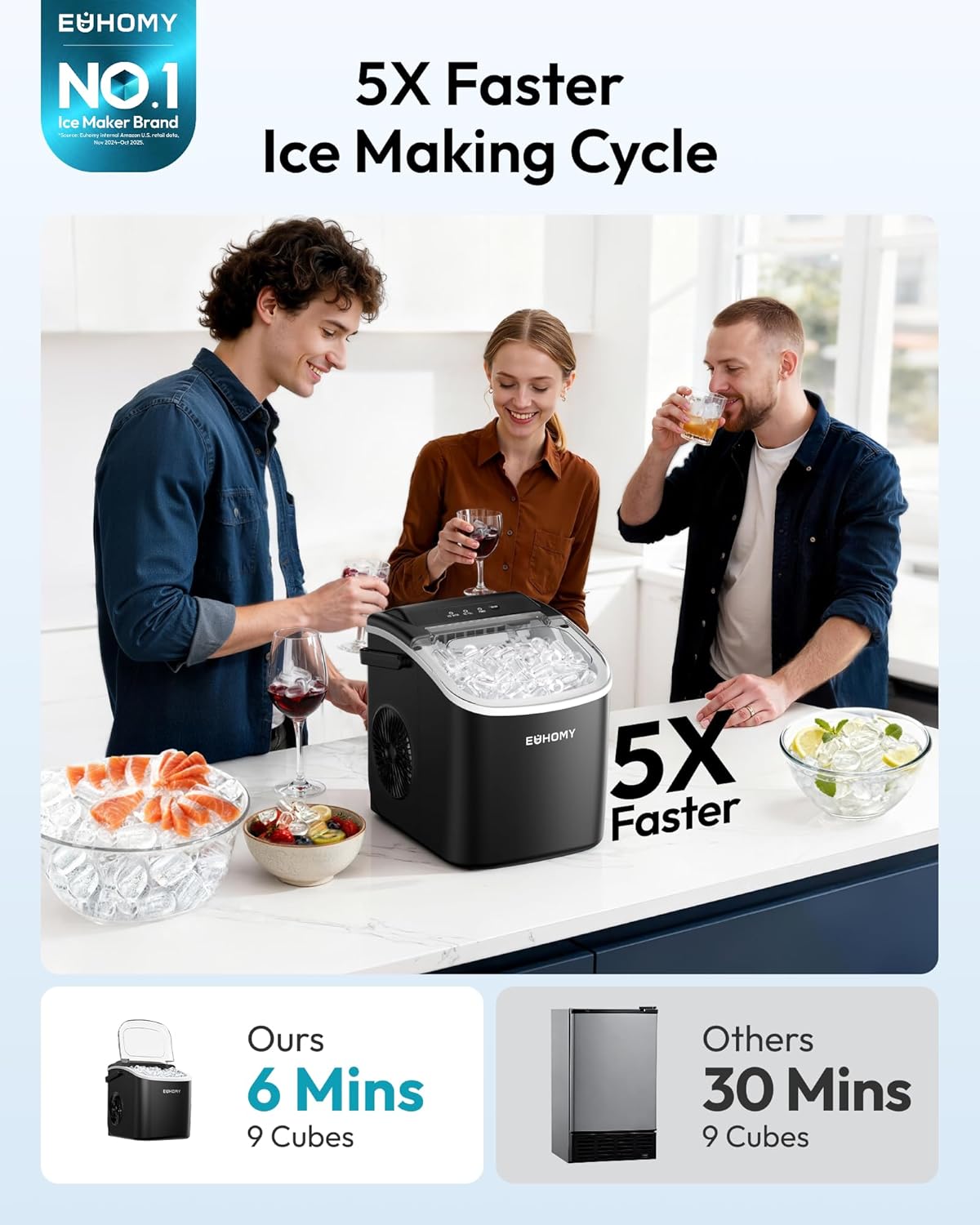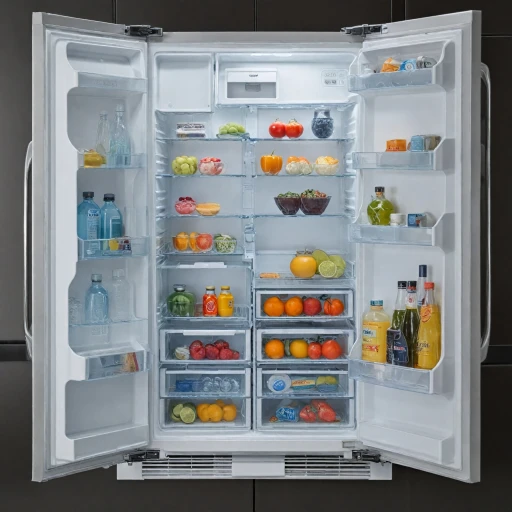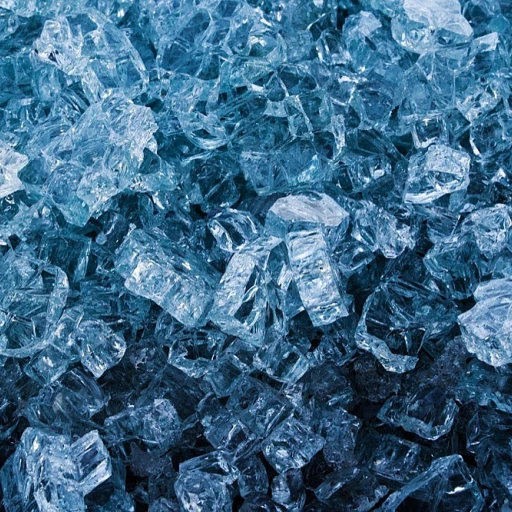
Understanding Ice Maker Malfunctions
Recognizing Common Ice Maker Issues
Experiencing problems with an ice maker can be a common frustration, especially when you're in need of a cool drink. One of the first steps in solving these issues is recognizing the most frequent malfunctions that can arise. Some typical troubles you might encounter include:- Ice maker not producing ice
- Slow ice production
- Ice cubes that are too small
- Leaking water from the ice maker
- Incorrectly shaped ice
Diagnosing Water Supply Problems
Identifying Issues with the Water Line
A consistent water supply is vital for the efficient operation of any ice maker. When issues arise with the water supply, it can prevent your machine from producing ice at its optimal potential. To understand the mechanisms better, you might find it useful to explore the role of the ice machine valve.
First, check that the water line is not blocked or kinked, which can restrict water flow and result in reduced ice production. If the line is clear, proceed to inspect the water filter. A clogged filter can also impede proper water flow.
Ensuring Proper Water Pressure
Low water pressure can significantly affect ice production. The pressure should be within a certain range, usually specified in the product manual. Inadequate pressure might mean your ice maker needs a pressure regulator or potentially indicates a wider plumbing issue.
Inspecting Connections and Components
Check for any loose connections or leaks, as these can lead to water supply issues. Leaks may be evident through pooling water around the machine or visibly damaged tubing. Tighten connections gently to avoid causing further damage.
Lastly, verify that the incoming water valve is functioning properly. A faulty valve might not supply the correct amount of water. Make sure it's opening and closing as needed during the cycle.
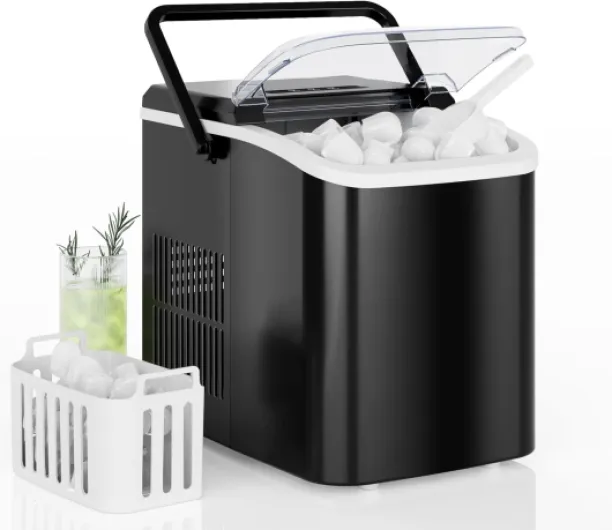
- + Fast Ice Production: 9 bullet ice cubes in just 6 minutes
- + Self-Cleaning Function: Easy maintenance
- + Portable: Ideal for home, kitchen, RV, and camping
- + Compact Design: Saves space on countertop
- + Quiet Operation: Doesn't disturb your environment

Dealing with Ice Maker Noise
Taming the Sound: Quieting Your Ice Maker
Noisy ice makers can be both annoying and concerning. Often, the sound is a normal part of the ice production process, but sometimes it indicates a need for attention. Here's how to differentiate between the two and manage those disruptive noises.- Identifying Standard Noises: Ice makers typically produce a variety of sounds, from hissing during the water fill stage to popping as ice cubes are released into the bin. Understanding these can help you recognize when there's a problem.
- Abnormal Sounds to Notice: If your ice maker sounds unusually loud or you hear unfamiliar clunking or grinding noises, those could point to mechanical issues. Components like the motor or fan might require maintenance.
- Secure Loose Parts: A common cause of rattling or buzzing is loose components. Inspecting and securing any loose parts can help reduce noise. This simple check could save you from more complex interventions later.
- Level the Appliance: Ensure that your ice maker is on a stable and level surface. An off-balance machine can cause undue noise and potentially affect functionality.
Addressing Ice Quality Concerns
Enhancing Your Ice's Quality
When it comes to ice makers, ensuring the quality of your ice is critical for both taste and appearance. A few common issues can impact ice quality, but addressing them can result in clearer, better-tasting ice cubes. Firstly, check the filter. A dirty or clogged filter can affect water purity, influencing both taste and ice clarity. It’s advisable to replace the filter every six months, or as per the manufacturer’s recommendation. This practice not only safeguards ice quality but can also prevent malfunctions in operational performance. Next, consider the water source itself. Minerals and impurities in the water can lead to clouded ice and off flavors. If this is a recurring issue, a water softener or a separate filtration system could offer a solution. Ensuring that the water line is clean and sediment-free aids tremendously in preserving ice quality. Moreover, the temperature settings within your freezer or ice maker are crucial as well. If set too low, ice may form too quickly, trapping air bubbles that lead to cloudiness. Conversely, ensuring an optimal temperature ensures slow freezing, resulting in clearer ice cubes. Keeping up with these simple tips not only maintains ice quality but also aligns with regular maintenance routines, enhancing the lifespan of the appliance.Regular Maintenance Tips
Regular Care for Optimal Performance
Maintaining your ice maker regularly can help prevent many common issues that arise. Regular maintenance not only ensures the longevity of the machine but also maintains ice quality and overall efficiency.- Clean the Ice Maker: Over time, residues can build up, which may affect the taste and clarity of your ice. It's essential to clean the ice bin, water line, and other components regularly to avoid bacterial growth and potential clogs.
- Check the Water Supply: To keep your ice maker producing high-quality ice, make sure your water supply remains uninterrupted and free of impurities. Regularly inspect the water line for any signs of leaks or kinks that may affect flow.
- Inspect the Ice Maker's Environment: A poorly ventilated area can cause your ice maker to overwork and overheat, leading to noisy operations or even a breakdown. Check that air vents around the machine are clear of obstructions and that the ambient temperature is suitable.
- Replace Water Filter: If your ice maker includes a water filtration system, ensure the filter is replaced every six months or sooner if needed. Clean filters maintain water quality and prevent clog-related malfunctions.
When to Call a Professional
Seeking Professional Help for Your Ice Maker
Caught in the throes of an ice maker malfunction? While our earlier discussions provided insights on common troubles like diagnosing supply problems, noise issues, and ice quality, some scenarios may necessitate a call to the experts. Here’s when reaching out to a professional might be your best course of action:- Persistent Malfunctions: If you have tried all troubleshooting tips such as checking the water supply and optimizing ice maker settings, yet the problem lingers, it might indicate a complex underlying issue that requires expert assessment.
- Electrical Concerns: Malfunctions that involve electrical components, such as unresponsive controls or recurring power shortages, should always be assessed by a professional to ensure safety and prevent further damage.
- Structural Damages: Dents, leaks, or other structural issues not only affect functionality but can also compromise the safety and efficiency of your ice maker.
- Specialized Equipment: Some ice makers come with unique features or require specific handling that only trained professionals can provide. This is especially true for advanced models from certain manufacturers.
-logo-retina.png)

